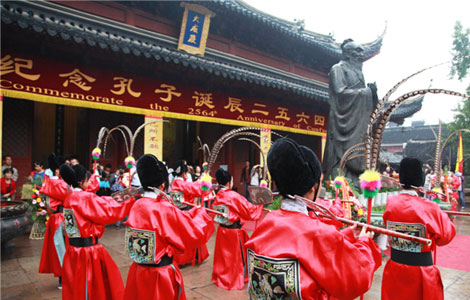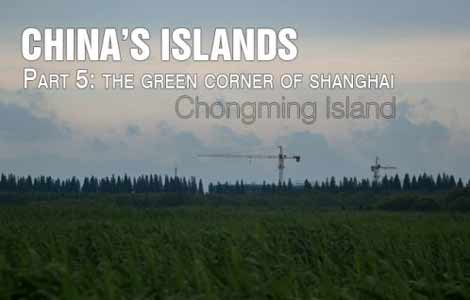Tourism to be leading industry along Silk Road
Updated: 2013-09-29 16:15
(Xinhua)
|
||||||||
XI'AN -- Tourism will become one of the leading industries along the Silk Road economic belt, which covers western China, central Asia and Europe, according to officials and experts.
The road has great charm and tourism will be a leading industry for the Silk Road economic belt, said Pavlos Geroulanos, former Greek tourism and culture minister.
But some barriers need to be overcome first. It will be very convenient if more than 20 countries along the Silk Road have the E-visa service, Geroulanos said at a tourism conference held during the Euro-Asia Economic Forum which ended on Saturday in Xi'an, capital of Northwest China's Shaanxi province.
During his visit to Kazakhstan in early September, Chinese President Xi Jinping put forward the proposal of a Silk Road economic belt to deepen cooperation and make economic ties closer among European and Asian nations.
The Silk Road refers to the land trade route opened when Zhang Qian was sent west on a diplomatic mission more than 2,000 years ago. Starting from the old city Chang'an, known today as Xi'an, the ancient road ran through Northwest China's Gansu province and Xinjiang Uygur autonomous region, and Central and Western Asia, before reaching the Mediterranean.
Xi'an, the start of the ancient road, should take the lead in tourism development, said Pan Qiuling, head of the Tourism School at Xi'an International Studies University.
Xi'an served as the capital of more than ten dynasties in ancient China, including the Qin Dynasty (221-206 BC) and the Tang Dynasty (618-907). The city boasts world-famous tourism sites such as the Museum of Qin Shihuang Terracotta Warriors and Horses.
In the first half of this year, 43.6 million tourists visited Xi'an, including 530,000 from overseas.
Along the Silk Road economic belt, there are rich tourism resources, including many heritage sites and landscapes in Central Asia, said Zhang Yongke, head of the Xi'an Tourism Administration.
Xi'an and other cities along the route should strengthen exchange and cooperation in tourism, he said.
Mutual exchanges can help solve problems in transport, communication and visa services, the official added.
Xi'an can take the initiative and jointly set up a Silk Road tourism cooperation organization with other regions to make the road an attractive tourism brand, proposed Chen Qingliang, deputy head of the Shaanxi Provincial Tourism Administration.
Regional cooperation is needed for the development and international marketing of Silk Road tourism products, according to experts.
Liubava Moreva, a programme specialist for culture of UNESCO, said indigenous culture and heritage sites should be protected for sustainable tourism development.
China, Kazakhstan and Kyrgyzstan have been jointly working on inscribing several sections of the Silk Road in the three countries on the UNESCO world heritage list, to better protect the heritage of mankind, according to Yang Zhongwu, head of the Shaanxi Provincial Tourism Administration.

 American batman soars through Chinese mountain
American batman soars through Chinese mountain
 Kenya mourns victims of Westgate mall attack
Kenya mourns victims of Westgate mall attack
 Home schooling popular with Chinese parents
Home schooling popular with Chinese parents
 Royal Mint coins to mark Prince George christening
Royal Mint coins to mark Prince George christening
 29th Golden Rooster Awards
29th Golden Rooster Awards
 China marks birthday anniversary of Confucius
China marks birthday anniversary of Confucius
 Obama, Iran's Rouhani hold historic phone call
Obama, Iran's Rouhani hold historic phone call
 Li Na learns from her past
Li Na learns from her past
Most Viewed
Editor's Picks

|

|

|

|

|

|
Today's Top News
Special PLA medical squad starts service
US House votes to delay Obamacare
US spy agency mapped people's behavior -NYT
China won't seek hegemony, FM tells UN
China on yellow alert as Typhoon Wutip nears
Xi to visit attend APEC summit
East China cities debut 4G phones
Shanghai FTZ begins operation
US Weekly

|

|







